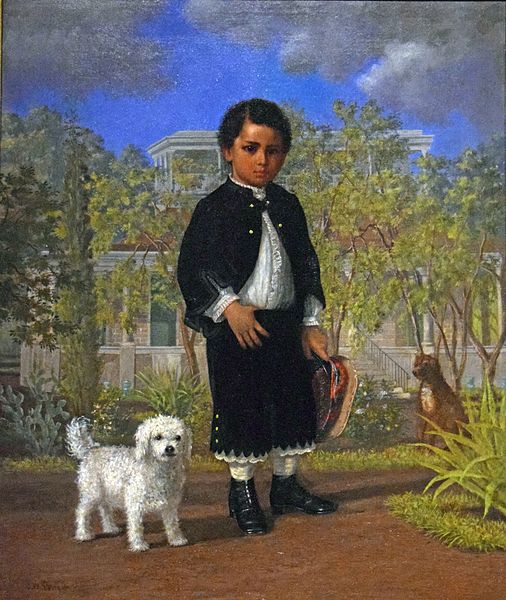
Dogs “speaking” human words is a popular subject on YouTube and gets passed around on social media. Needless to say, people in the early 1900s were just as fascinated with animals taking on human like abilities.

Don, the Dog, Really Speaks Human Words
By Norman Rose
New York, July 22. — Don does talk.
That is, this dog speaks human words. And nobody who hears him speak, who notes the tremendous canine earnestness which he throws into his efforts at vocalization, can doubt for an instant that Don is trying to talk — not merely to make a noise, but to say something.
The “talking dog,” brought over from Berlin by William Hammerstein, and appearing at the Victoria roof, has amazed his audiences. Most folks who have gone to see him have undoubtedly had the idea that Don might have some peculiar way of barking which would faintly resemble human speech, but that he would be able to enunciate at all seemed quite incredible.
But the dog does enunciate. It’s quite uncanny to hear him. It always takes him three or four or more attempts to speak the word he has been told to. He starts off, generally, with a plain bark or yelp. The next attempt bears some faint resemblance to the word. Finally it is quite clear what he is trying to say. You might not know what the word was, if you had not been told in advance, but when you are watching for it, you recognize it.
And you know, just as well as does Madame Haberland, Don’s owner, when Don slips up and speaks a wrong word.
The difference in his enunciation is sufficient for that — which surely is “going some,” for a dog.
The first word Don speaks is his name. Not much to that — about all you get is the vowel sound. Then, at the command of Madame Haberland, he says “haben,” the German word for “have.” Here one wakes up to the fact that Don really is different from all the other dogs in the world — he says “haben” distinctly, in two conjoined syllables. Not two separated barks, such as any dog might give vent to, when excited, but a fully connected bark, so to speak, in which the vowel sounds are plainly differentiated.
Then comes Don’s most wonderful word, “hunger,” which means the same as in English, but is pronounced somewhat differently. Don speaks it so plainly that the effect on the human listener is nothing less than thrilling. The “h,” of course, is lost. But the two vowels are plain and distinct, and the “r” is plainly audible.
Next, Don days “kuchen” (cake) and finally he speaks the name of his mistress, Haberland. Here, of course, the conjoining of three syllables into one bark is the remarkable thing. And Don does it, without the shadow of a doubt.
Don is a big, smooth-haired brown dog, 8 years old. Madame Haberland has been exhibiting him in Europe for several years.
Source: The Day Book (Chicago, Illinois newspaper). July 22, 1912.

